Central African Republic
Was the Presidential Election in the CAR Credible?
Many who predicted a disaster in the Central African Republic will have to eat their words in light of the recently staged presidential and legislative elections in the country — in spite of volatile and problematic electoral incidents.
Sunday's vote is a key step for what many believe is Africa's most troubled state. A title due to the nation's economic challenges and presence of militia brutality amid the political residue from a civil war that erupted in 2013.
A Successful Election Amid Electoral Violence?
The week leading up to the election day saw the government accuse a coalition of the three largest armed groups of working with former president François Bozizé (since back from exile a year ago) to overthrow the current and second-term hopeful President Faustin Archange Touadera. Three United Nations peacekeepers lost their lives in the violence surrounding the political tensions.
Georges Namkoïsse, a local farmer in Bangui capital, expressed his concerns, "We are afraid, the women, the children are afraid because we say it most often, our neighbourhood is the Bozizé neighbourhood, that's the problem, too many threats."
Gloire-à-dieu Toussounou, a local journalist, shared his insight on the matter as he echoed the resounding sentiment of many of his compatriots.
"The population decided to safeguard democracy, which is why they mobilised in the capital on a massive scale to go and vote, so it's a relief. What we want, what the Central African population wants for the future or after the elections, is only peace, that's all."
Although the 63-year-old President Touadéra is strongly favoured to be re-elected, experts point to several factors that could determine the legitimacy of his re-election.
Ballot Security
In a country where armed groups hold sway over two-thirds of the territory, votes have to be transported to Bangui to be counted.
Provisional results are expected from January 4, but no final results are expected before January 18. A runoff will be held on February 14 if there is no outright winner in the first round.
Those three long weeks provide plenty of opportunities for votes to disappear — a scenario that notably happened in Touadera's own surprise election in 2015-16.
Voter Turnout
Polling was high in the capital Bangui, where it went ahead without incident, but it was badly affected by violence in the provinces.
The Strategic Committee for Secure Elections (CSSE), a governmental body, said it had documented at least 12 large districts, called sub-prefectures, where voting was unable to start.
The UN says there were also numerous polling stations which did open but then swiftly closed or remained empty because of voter intimidation.
Militia Pressure
A coalition of militia groups opposed to Touadera has so far been blocked from advancing on Bangui by UN forces and reinforcements flown in from Rwanda and Russia.




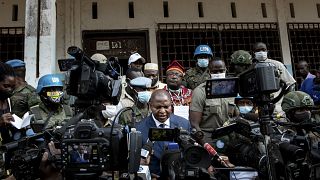
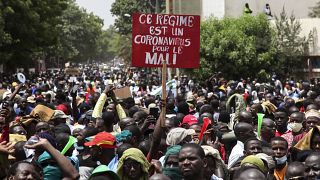
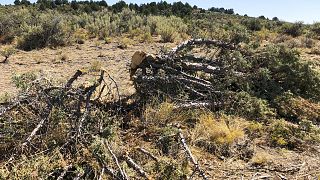
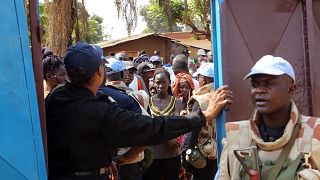
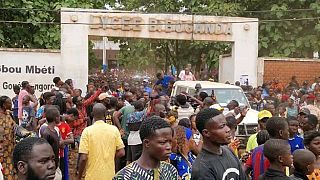
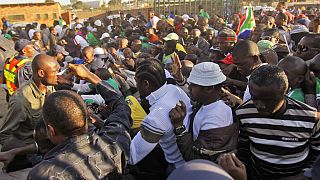



02:35
Central African Republic's major rebel groups to disarm, dissolve
02:55
In Cameroon, Paul Biya's candidacy divides his party
01:54
"Great economic potential in Africa": five African leaders have lunch with Trump
02:21
Ivorian diaspora in Paris demands free and inclusive elections ahead of October vote
01:09
Cameroon’s civil society calls on voters to sanction Biya in upcoming elections
Go to video
Togo suspends French state-owned broadcasters RFI and France 24